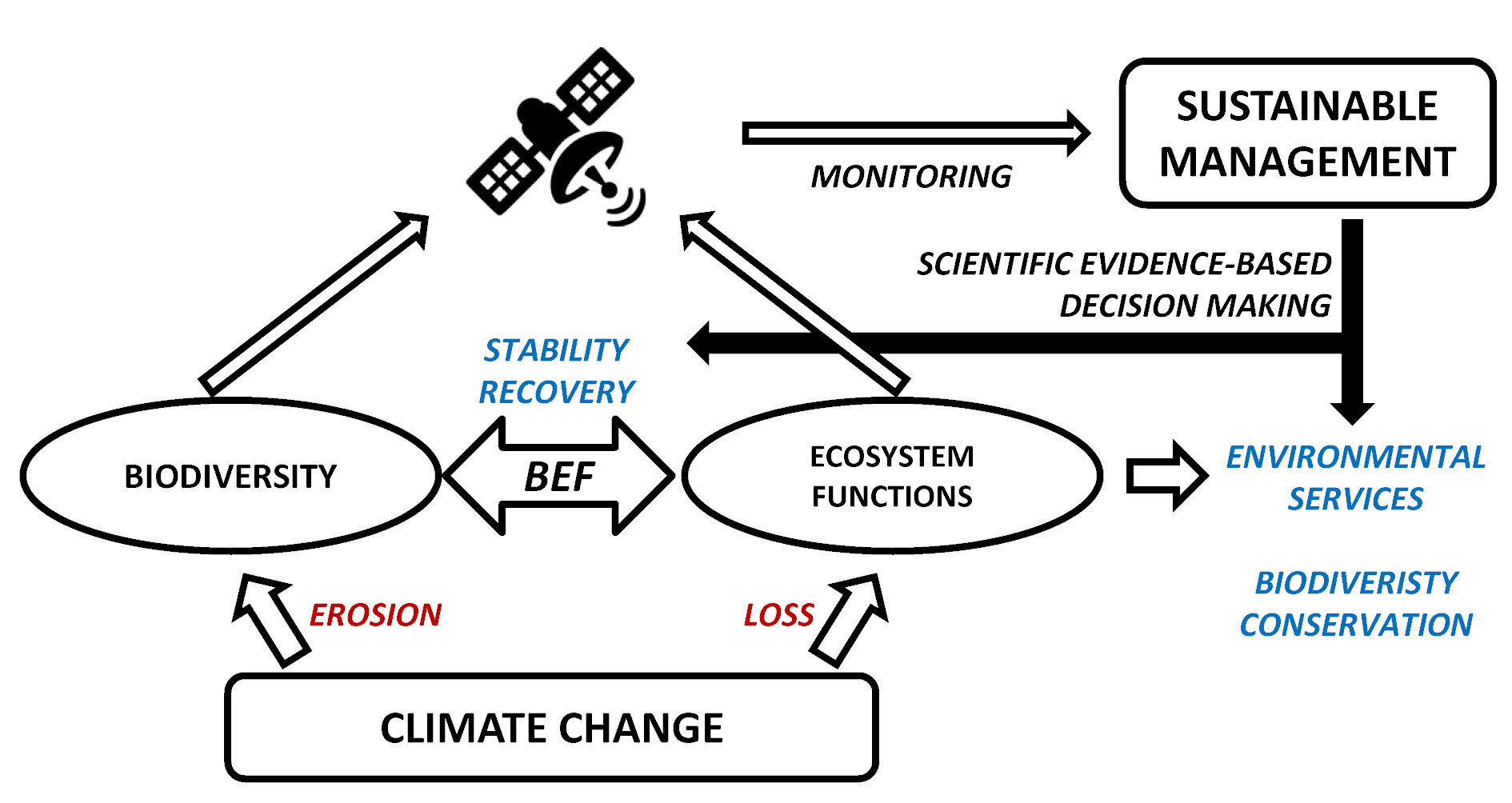
- Tipo de expresión:
- Doctorado: Propuesta de dirección de tesis doctoral/temática para solicitar ayuda predoctoral ("Hosting Offer o EoI")
- Ámbito:
- Remote sensing of plant diveristy and ecosystem fuctions
- Área:
- Vida
- Modalidad:
- Ayudas para contratos predoctorales para la formación de doctores (antiguas FPI)
- Referencia:
- PIF2024
- Centro o Instituto:
- INSTITUTO DE ECONOMIA, GEOGRAFIA Y DEMOGRAFIA
- Investigador:
- JAVIER PACHECO LABRADOR
- Palabras clave:
-
- teledetección, remote sensing, biodiversidad, plant diveristy, dehesa, mediterranan savannas
- Documentos anexos:
- 666077.pdf
PIF2024 - Proximal and remote sensing data integration for plant diversity monitoring in Mediterranean savanna ecosystems (PID2023-151046NB-I00)
The project Integrated Observing Systems and Simulation Experiments to Analyze Biodiversity-Ecosystem Function Relationships in Savanna Ecosystems (BIOSSE) is looking for a Ph.D. candidate to develop new proximal and remote sensing methods to quantify plant diversity in Savannas, including satellite hyperspectral missions. The candidate will join the Environmental Remote Sensing and Field Spectroscopy Laboratory (SpecLab: https://speclab.csic.es), a reference laboratory in the context of proximal sensing, multi-scale remote sensing, and modeling, and will closely collaborate, among others, with the Max Planck Institute for Biogeochemistry and the 12 research groups integrating the Spanish Network of Optical Proximal Sensing (NetOPS: https://netops.csic.es) currently coordinated by SpecLab.
The Ph.D. candidate should have a biology or environmental sciences degree, ideally with an M.Sc. in remote sensing or ecology, written and spoken English proficiency, and basic programming skills.
The candidate will follow a tailored training program to acquire the scientific and technological skills necessary to achieve a Doctoral degree, perform research stays in national and international laboratories, and develop open-source publications and applications to facilitate the use and maximize the impact of his/her research.